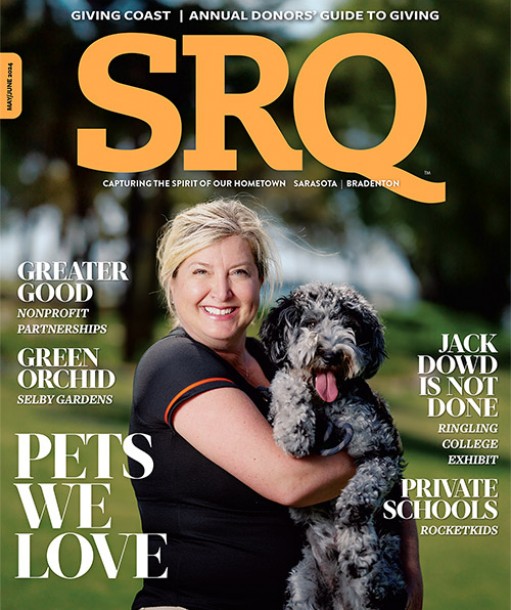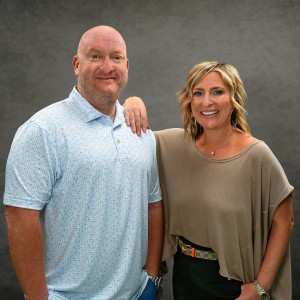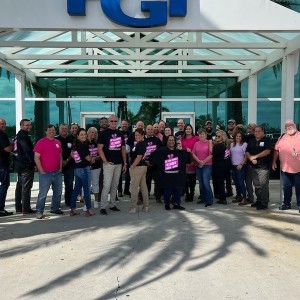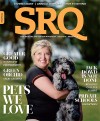The COVID-19 pandemic delivered a rapid blow to Florida’s economy, with job losses unseen since the Great Depression. SRQ MEDIA convened economic leaders to discuss the impact on the region and the path forward.
SRQ: When did the local economy begin feeling the economic impact from the coronavirus?
Heather Kasten, Greater Sarasota Chamber of Commerce: It is like someone turned the spigot off right around March 15, especially for a lot of these small businesses.
Jacki Dezelski, Manatee Chamber of Commerce: I would echo Heather’s assessment. That second to third week in March is when many businesses started confronting what the reality might look like for the weeks and months ahead. I was in Tallahassee when the announcements were made that Major League Baseball was suspending spring training and that the NCAA was canceling the basketball tournament finals. When some of those nationally impactful announcements were made, that caused a number of businesses to confront what the possibilities were ahead.
Erin Duggan, Visit Sarasota County: I just coincidentally happened to be at Disney World the night of March 19, the first night of spring break. That evening they announced they would be closing on Sunday. We were only staying for one night, but a lot of people were freaking out, canceling their theme park vacations and quickly trying to book a beach vacation because the resorts were still open and people were looking for more of those outdoorsy things to do. But once schools started getting shut down, that’s when you saw occupancy drop.
Elliott Falcione, Bradenton Area Convention and Visitors Bureau: It’s when the short-term rental restriction kicked in and people were allowed to stay and “finish up their vacation.” Then it started to slowly go down to hardly anything. Spring training pulled out. The blessing is the region was on record-breaking pace on business. We ended up being 34 percent down on tourism tax collection for the month of March.
SRQ: How have regulations impacted our businesses?
Dave Bullock, Economic Development Corporation of Sarasota County: The more savvy businesspeople looked ahead and intuitively knew something terrible was going to happen. I can recall them trying to position themselves and asking, “Will we be included as an essential industry?” We had a few industries that actually boomed. Some of the life-science folks, some medical folks and some small manufacturers were just going crazy trying to fill orders, especially in those early days. It really ran the gamut. No one knew what the federal response was going to be. The state programs were—I’ll be generous—limping along. They really struggled with their bridge loans and things like that at first.
Sharon Hillstrom, Bradenton Area Economic Development Corporation: I was really impressed with a lot of our manufacturers, how they quickly transformed their businesses to incorporate safety practices for employees.
Dezelski: I have been impressed by retailers who eight weeks ago had no platform for e-commerce and in a matter of weeks have created capabilities to be able to move some of their sales.
Hillstrom: One of the biggest challenges for businesses in general is just uncertainty about what’s next. A businessperson says, “Just tell me like it is so I can make some decisions.” When there’s so much uncertainty, that creates anxiety and then decisions are made that may not be right. The sooner the government can move forward with some concrete plans going forward in terms of recovery activities, that will be very helpful.
SRQ: Have you heard from business owners about their needs?
Christine Robinson, The Argus Foundation: I’m hearing a lot of concern over local governments in terms of being able to pivot to help businesses. We’ve had to bring to governments proposals for them to alter the way they do business to allow for things like parking lot dining, to allow for waivers of permitting so that way they can build walls for safety in their businesses. Governments are lagging. They won’t feel it for another several months down the road, maybe even a year or two. So the sense of urgency, there’s a little bit of disconnect. We’re trying to bridge that gap. There have been governments that have responded quickly. Others not so much.
Mary Dougherty, Gulf Coast Builders Exchange: In the beginning, our big push was to make sure construction was considered an essential business and we were very grateful for that. What my members have seen is the pipeline dry up. We don’t know what this is going to look like moving forward. For many of them, a lot of projects decided to go on the sidelines. Banks pulled funding.
SRQ: We’ve heard some reports that parts of development are doing quite well and some are not. What is the spread of this situation?
Dougherty: My guys who do anything in nursing homes or assisted living facilities, there’s a complete halt, and that’s affected that sector of their business, whereas my members who do school projects, they’ve been accelerated. Those of us who lived through 2008, we have to dust that playbook off because a lot of what we’re seeing in this pandemic reminds us of what happened then.
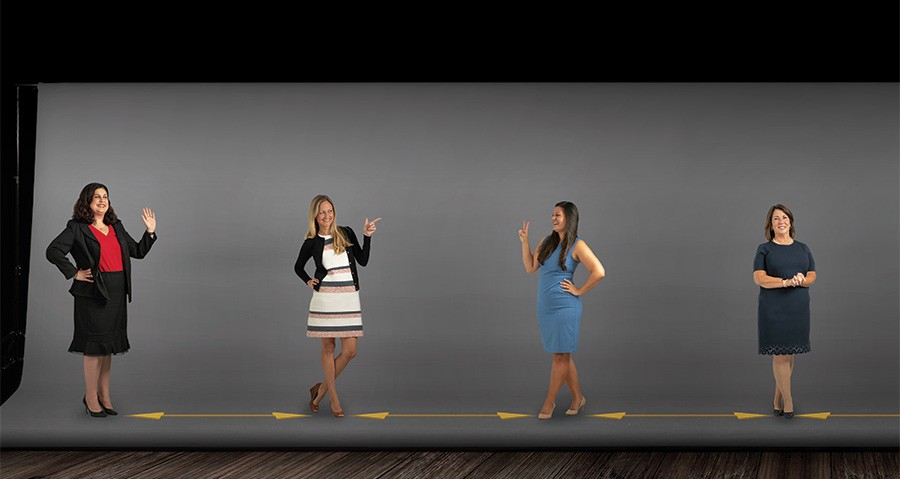
SRQ: Is our economy more diversified than ahead of the Great Recession?
Hillstrom: What’s so interesting is that while the majority of the EDC [Economic Development Corporation] is focused on business-recovery activities and business assistance, our director of global business development is super busy. We have 19 projects right now that we’re working on, and we’re getting called weekly from interested parties looking to locate to this area. We’ve done a good job in positioning the area as a great business destination just by virtue of having these calls coming in. I’m shocked actually. Bullock: We, too, are getting these interesting inquiries, which was a surprise to us. Whether people during this time have an opportunity to think about where and how they want to run their business when things start up and they’re thinking of a move, I’m not sure what’s motivating it. We do see the retooling of some of the manufacturers and the speed of it suggests our manufacturing sector may be more nimble than some of us thought. Obviously, necessity is the mother of invention. One industry, perhaps it’s been most impressive to me, is our quiet and rapidly growing tech sector. Those folks went home and conducted business and no one ever knew the difference because they were fully capable of operating remotely. It’s important to note that after July 1, Florida will no longer be a competitive state in recruitment. Florida basically exited the economic development recruitment arena this legislative session.
Falcione: The region has worked hard to put a good two-county brand in the marketplace. Some will question, “Why do you continue to market when you really don’t need to as much?” You have got to penetrate the market, so your brand, or brands, can compete when times are tough.
SRQ: As we speak, there is a 25 percent limitation on capacity for restaurants and retailers. Can restaurants realistically survive these restrictions?
Sarah Firstenberger, Sarasota-Manatee Originals: Every restaurateur is asking themselves that. But the most amazing thing in this industry is the ability to thrive in difficult situations. The restaurant industry is constantly evolving. We pride ourselves on thinking on our feet, and the question isn’t how long are we at this 25 percent restriction but how can we make the best of the situation. If you only had 20 tables to start with, your focus is on takeout. At Michael’s On East or Anna Maria Oyster Bar, you split interest in outdoor dining and takeout. Thankfully we live in an environment where outdoor dining is already prominent.
Robinson: The Coalition of Business Associations in Sarasota County asked for the temporary-use permits and waivers, and to expedite those permits for outdoor dining and outdoor retail to expand into parking lots and right of ways, all with the landlord’s permission, to be able to begin to lose less money. It’s not even breakeven at that point, quite honestly. It’s the ability to keep those employees employed, because many of the business owners understand that they’re not receiving unemployment.
Kasten: Now is an opportunity for these business owners to keep their top employees. You’re really starting to see a separation between the wheat and the chaff. Was there some fat on their business that they’re going to find out they can run effectively with fewer people? As far as commercial space, we’ve all had our hands forced to do this remote thing, there are going to be businesses that scale back commercial space and have people work remotely two days a week and in the office three days a week. That’s not going to happen overnight though, because leases are intact.
Dezelski: Not every restaurant is structured similarly to another. It will be a case-by-case basis as to what projections look like. One thing that we’re starting to hear more frequently—we’ve conducted more than 4,000 calls with businesses—there are some themes emerging around the assistance programs. Certainly the PPP [Paycheck Protection Program] settled down with the second tranche of funding. The treasury released numbers and Florida on the national level is No. 2 in the number of PPP loans, second only to California. And as far as the value of those loans, we’re at more than $13 billion.
Kasten: However, on the EIDL [Economic Injury Disaster Loans], that is still the black hole. We’ve heard from numerous businesses that they submitted on day one, day two, but it’s just been radio silence. Right out of the shoot there were some significant hiccups and delays.
Bullock: The state took 38,000 applications for the bridge loan and they could only grant 1,000 loans. They kept it open so long, knowing full well there weren’t funds anywhere near that amount. It’s a little bit like the unemployment system in the state. It’s getting its legs under it now, but none of those were ever made for statewide massive use.
Kasten: I want to give huge props both to the Sarasota County Commission and EDC. Listen, for government to come together, agree on something, set a date for a course of action; they wanted those checks starting on May 1. For government to make that happen, that was nothing short of Moses parting the Red Sea. Props to Dave Bullock and his team who came together and worked with local companies. To build a platform for these loans and to assemble a team of true volunteers to walk these loans through the process of due diligence; for that all to come together and for them to hit the mark is off the charts.
SRQ: Argus had some concerns about using the economic diversification dollars this way.
Robinson: Once they made the decision to use it, we understood that. We think there’s going to be some problems probably three to four months down the line of accessing capital. We were hoping that could be saved for when those PPP loans were done. Obviously it all helps. But like what the city of Sarasota in particular is doing with the grants, once the program is done, the injection happens and then it’s over with. I wish it had been a couple months down the line, when the access to the liquidity is dry. Quite honestly, it’s going to get politically complicated at some point when we forget about the environment we have right now. If I can just interject, the Sarasota EDC pivoted like you would not believe and put together a program under Dave’s leadership. They took that charge, they went forward. They did everything they possibly could and consulted with members of the business community to get there very quickly.
Bullock: I am just a pretty face in this deal. We had incredible contributions from private businesses. Half the people on this call in one way or another were involved in helping. We opened this up at 9 o’clock on April 27 and by 10:40, we had all the applications we could fund. That’s the demand. But the other thing it shows is the incredible preparedness these businesses had done. They had the forms ready to upload. By the way, the average number of employees for grant recipients was seven. So these were really small businesses, who are 96 percent of the businesses in Sarasota County. Let’s not kid ourselves—$25,000 is not a lot of money for what most of these businesses are facing, but we did what they really wanted us to do, which was allow the expenditures to go beyond where PPP went.
SRQ: We hear about airport traffic being 95 percent down. Can you guys tell us how you come back from that?
Duggan: There are consumers out there that say they are interested in planning a summer vacation. It might only be them going an hour and a half away from their house and staying on the beach for two nights, but you also have people who are not exhibiting those behaviors. We’re having to laser target our digital advertising. To me, if someone is dining out in Orlando, that’s someone who’s probably going to be more likely to go on a vacation. We have such limited funds here on this coast. We can’t really afford to spend our very limited dollars building consumer confidence in flying.
Falcione: The traveler sentiment study is going to be so paramount to that decision-making. We are communicating well with the airlines, like Allegiant, so we’re focusing on that drive market.
SRQ: What does an economic rebound look like? Will there be demand shock and a faster recovery?
Dougherty: We’re looking at either a U-shaped or a V-shaped recovery. Pent-up demand is there, particularly for Florida. New York, New Jersey; they have such a different situation. Not to be opportunist about it, but our experience has been different. Those who can manage to get out of those really hard-hit areas may look to do so.
Robinson: It depends on the industry. It’s obviously a bloodbath for restaurants and retail, it’s who’s going to make it out, and if they make it out, how much debt are they going to have, and how many employees are they going to have. Construction is going to continue to do well. When you have to make an appointment to go into a store and the maximum number of people they allow in is six, that’s not sustainable.
Hillstrom: It may just completely transform the retail industry with e-commerce and storefronts that maybe are the place where you go and pick up your merchandise. There’s opportunity there for really tech-savvy, smart people to look at that and say, “How can we reimagine this particular industry?”
Firstenberger: This situation has changed the face of dining out in restaurants for the foreseeable future. Already takeout was on an upward trend. Now it’s an explosion. At least into mid-2021, you will see these new practices in place, and God forbid there’s a second wave you will see it even further. We will evolve and adopt. Unless this is it and in six months the virus is gone and we never see it again, dining will forever have some small changes.
Dezelski: Florida’s economy was the 17th-largest economy in the world prior to the pandemic. The fundamentals of our economy were humming along on a continued upward trajectory up until this crisis. I’m assuming that those fundamentals aren’t completely broken.
SRQ: What’s the impact on businesses if schools don’t go back into the session in the fall?
Kasten: Every employer is going to have to get creative really quick. For every employer, the old ways are going to the wayside and we are going to have to get flexible on what that work schedule looks like. The companies that do that and can morph and can make those changes, they’re the ones that are going to keep moving forward.
SRQ: Can you talk to US about supply chainS?
Hillstrom: I spoke with [Port Manatee] right after everything went haywire, and because of the products that they bring into the port having to do with making toilet paper, at that time they were really doing quite well. Some of our manufacturers have experienced disruption in their supply chains.
Bullock: When this thing first started, we were getting calls from companies whose domestic supply chain had been interrupted because one state locked down in a different way from another state. Some were essential, some were life-sustaining. We had manufacturers who were unable to get products from Michigan because of the way the state government implemented this and they were looking around for some other suppliers.
Dougherty: We’ve always focused on local businesses and local contractors, and for the remainder of the year we plan on expanding that focus. It would be our goal that every one of our members don’t cook for the rest of the year either. Take your family out to a meal or pick up takeout, support those local retailers.
Firstenberger: This time of year is when restaurants always store away everything to survive the slow season, not just owners but servers and people in the kitchen. What Originals is focused on now is what August will look like. Tourism was affected in what is traditionally the most important part of the year.
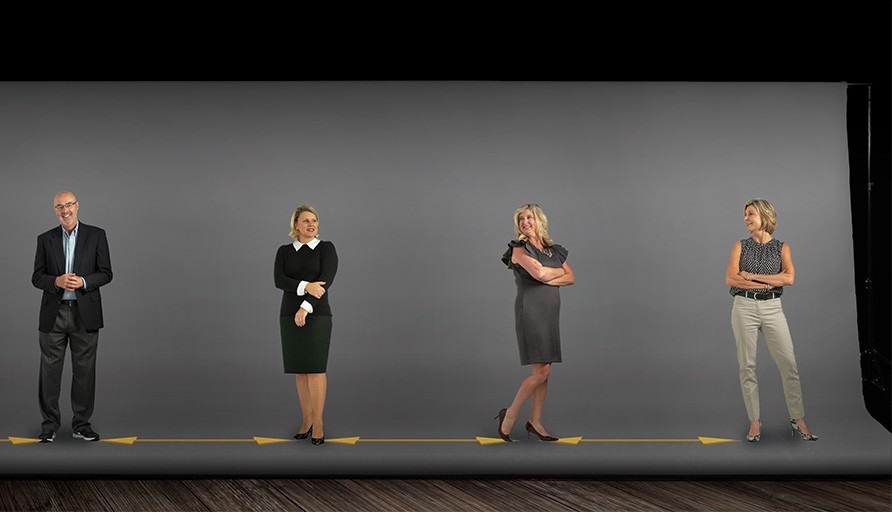
SRQ: Are there concerns about the inventory of homes or condos that were being built up?
Dougherty: Bite your tongue. Hopefully not. But that’s a big unknown.
Kasten: If you look at the real estate market here in Sarasota County, there are actually more homes right now being pulled off the market than put on the market. I haven’t seen the final April numbers yet.
Falcione: I’m just a tourism guy. But what you may see happen is in a lot of these highly dense, large cities around the country, they may be more inclined to want to move to an area like this. It happened after 9/11.
SRQ: How do you balance public health needs with keeping a viable economy and keeping Florida functional?
Bullock: We’re going to get it wrong, because there is no model to follow. No one knows how this is going to work. But this needs to be a thoughtful, nimble approach. The whole national conversation is asinine. Just put it aside. But you try something, you see states starting to do this or that, there may be pullback. We’re all just hosts in this deal, biological hosts of this virus that has no politics. It doesn’t care if it can get to you. I’m not a Republican or Democrat. But what we’ve got to do is be prepared to change, pivot and adapt and try to figure this out until we have a medical defense against this thing.
Robinson: The conversation started with the medical infrastructure. We know what we need now. We know where we need to be nimble and be able to shift that around, whether it be respirators, hospital beds, we have experience. So even if that was to happen, the degree to which we had to shut down this time, I don’t believe it will happen a second time. I agree with Dave to the degree that the conversation needs to be on what the real issue is. We may need to adjust along the way, but focusing on whether we’re going to kill somebody or whether we’re not, I don’t think that’s the conversation we should be having.
Dougherty: Some of the basic simple human behaviors that we learned through this. My hands are so dried out from washing, it’s unbelievable, but maybe they always should have been. I used to call myself a hugger. I’m not a hugger anymore. I’d come out of a networking event and think, how many hands did I shake? We need to not have short memories, at least for the next several months. GCBX [Gulf Coast Builders Exchange] is only going to be holding outdoor networking events. That idea of going into a closed area, standing shoulder to shoulder, may have to be a thing of the past.
SRQ: Did we in any way go too far here in Florida?
Bullock: Easy. No. No one knew what was going to happen here. We didn’t even understand the virus. As Christine said, this was medically driven and fear-of-the-unknown driven. But that was a better response, especially if you’re my age, than waiting and watching the count. But as we learn more, that’s how we need to form our response medically, economically, socially, all balanced in some form or fashion.
Kasten: A lot of businesses are really looking for some guidelines, a path forward. We have a group of community leaders looking at a pledge or a promise to show a sense of community to give our businesses some guidelines about moving forward in coming out of this.
Duggan: In the summer is when we do our programming such as Savor Sarasota or Sarasota Big Pass. We are continuing to do those with our partners right now. We’re pivoting a bit, because we feel more than ever we want to get locals to go out and engage with our restaurants and our retail partners. While normally our motive is to just get heads in beds, we’re crafting messaging geared toward locals as well. Sarasota Big Pass is where we promote our retail partners that are offering BOGOs or 25 percent off deals. SRQ MEDIA is our partner for that promotion.
Dezelski: We launched our Recover Manatee initiative. Now we’re in the restart phase, as the governor announced Phase One. The Manatee Chamber is looking at measures and guidance and resources [business owners] need for reopening, for understanding the environment and what they need to do from a health and safety perspective in particular. Our local governments are certainly focused on hurricane season. While we have this pandemic that has taken all of the attention and energy and resources, we can’t forget about the vulnerability to Florida.
Falcione: We don’t want to talk about other adversarial opportunities out there like hurricane season, like this virus could come back stronger in the future. But when the light switch flips to the next level, be ready to open the doors and ramp up.
SRQ: Should businesses prepare to start taking temperatures?
Kasten: A law firm talked about having the employees fill out a form that basically has some basic things: I will take my temperature daily; I will not come to work sick; I will wear a mask. But it’s really putting some of the responsibility on the employee and some on the employer side; providing them the protective equipment of masks and gloves, and making sure their workstations are six feet apart. Small businesses are concerned about the liability aspect of somebody coming back, contracting COVID and does that put liability on the company. Someone mentioned she was advised that an employee keep a daily record of every place they go, so that in the event that somebody contracted COVID, that business could say, “Hey, look at all these other places that this employee went to.”
Duggan: From the consumer sentiment studies, one thing that is very similar is who people look to: the CDC. I know we have been looking very closely at what the CDC guidelines are. SRQ




